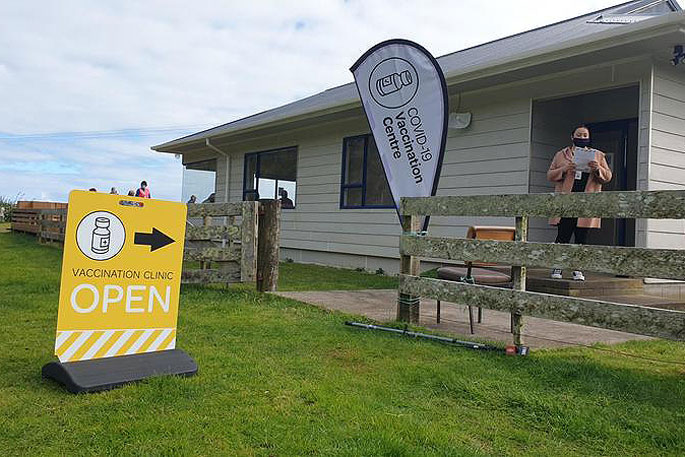Ninety-per cent of Māori will have received their first dose of the Covid-19 vaccine by the end of the day.
Ministry of Health says as of 11am today, vaccinators were just 142 doses away from reaching the milestone.
There are 209 community cases reported today, in Northland, Auckland, Waikato, Lakes, Tairāwhiti, Hawke's Bay, MidCentral and Bay of Plenty, where a resident at a rest-home has tested positive.
Three cases in Nelson/Marlborough will be added to the official tally tomorrow.
While overall, Māori are expected to reach the 90 per cent milestone today, rates differ for each DHB.
Ninety-five per cent of Māori aged 12 and over at Canterbury and Capital and Coast DHBs are already partially vaccinated,
Northland and Whangarei have the lowest rates for Māori aged 12 and over, with 86 per cent in their areas partially vaccinated.
In total, 513,799 Māori aged 12 and over and 115,562 tamariki aged between 5 and 11 are partially vaccinated, according to the ministry's latest vaccination data.
Covid-19 Māori health analyst Rāwiri Taonui told Local Democracy Reporting yesterday that Māori vaccination numbers throughout the country were concerning and had to be lifted urgently before the Omicron variant took hold.
"There's an impression that Omicron causes milder disease and that's true but the scale of cases is so large that even a small percentage of severe illnesses is quite a serious situation."
Taonui says the ministry's data showed 18 per cent of tamariki Māori nationwide had their first vaccination compared to 33 per cent for all ethnicities.
But the gap is much wider due to an undercount of more than 12,000 in the index the ministry used to count vaccinations and the estimated number of tamariki Māori, he says.
"That gap is closer to 25 or 26 per cent. A more accurate calculation of the tamariki vaccination is 16.1 percent for Māori compared to 40.9 per cent for non-Māori/Pacific."
Taonui is calling on the government to cut the wait time between first and second child vaccinations from eight weeks to three, and to prioritise the tamariki Māori vaccination rollout to avoid repeating the inequities of the national vaccination programme to date.
"This includes targeting low-decile schools with large Māori enrolments," Taonui says.
"At the moment Māori cases are very low. But at some point there's going to be a vector by which Omicron begins to make its way into our community and that is likely to come when our children go back to school and begin mixing with kids from other communities and take the virus home."
The ministry has to release tamariki Māori data to the Whānau Ora Commissioning Agency and other Māori health providers to help them quickly locate children who had yet to be vaccinated, he says.



0 comments
Leave a Comment
You must be logged in to make a comment.